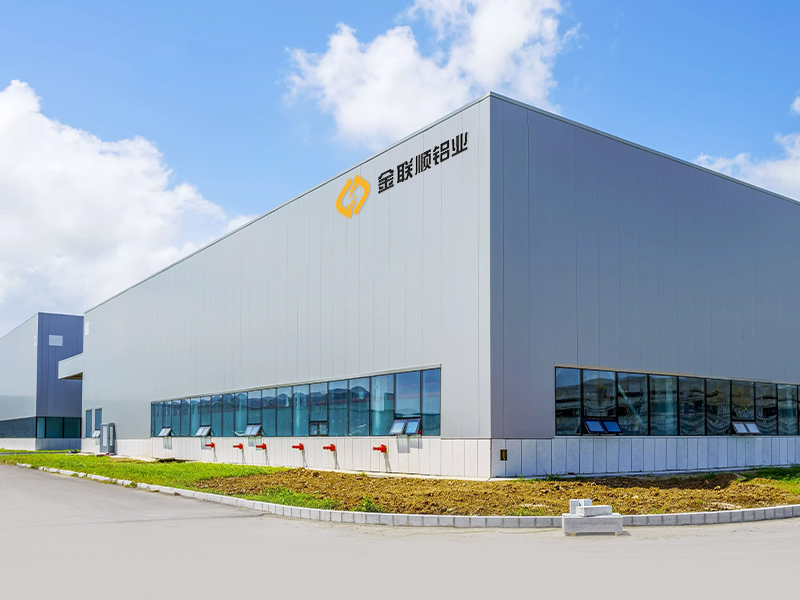Industry knowledge
What Are the Main Applications of Compressor Heat Exchangers of Wuxi Jinlianshun Aluminum Co. Ltd.?
Compressor heat exchangers play an indispensable role in maintaining the optimal performance and efficiency of HVAC systems, refrigeration, and industrial cooling processes. These sophisticated devices are engineered to transfer heat between fluids—typically refrigerants and air or water—by effectively managing the temperature of gases or liquids within compressors. As compressors operate, they generate substantial heat during the compression process. This heat, if not efficiently removed, can lead to system inefficiencies and even failure. Compressor heat exchangers are crucial for maintaining a compressor’s reliability, preventing overheating, and ensuring its longevity.
At the heart of this technological innovation is Wuxi Jinlianshun Aluminum Co., Ltd., a distinguished manufacturer of aluminum plate fin heat exchangers. Situated in the picturesque and strategically located Wuxi City, the company provides cutting-edge solutions to diverse industries. With its emphasis on superior quality and customer satisfaction, Wuxi Jinlianshun Aluminum’s heat exchangers are celebrated for their high heat exchange efficiency, compact design, lightweight construction, and remarkable adaptability. These attributes make them ideal for a broad spectrum of applications across industries that demand precision and reliability.
Key Applications of Compressor Heat Exchangers
1. Compressors
A primary application of compressor heat exchangers is in the refrigeration and air conditioning sectors. These systems rely heavily on compressors to compress refrigerants, and the heat generated in this process must be dissipated efficiently to maintain system integrity. Wuxi Jinlianshun Aluminum's high-performance heat exchangers offer superior thermal efficiency, ensuring that the compressor maintains optimal operating temperatures. This helps in reducing energy consumption and improving the overall effectiveness of the system.
2. Construction Machinery
The construction industry requires robust machinery capable of withstanding extreme conditions. Heat exchangers are integral in cooling the hydraulic systems and engines of construction machinery, ensuring they operate at peak efficiency. Wuxi Jinlianshun Aluminum’s heat exchangers are designed with durability in mind, allowing them to function flawlessly even under harsh, high-stress environments. Their lightweight and compact design contribute to the overall reliability and efficiency of construction equipment.
3. New Energy
As the world pivots toward more sustainable energy sources, new energy applications, such as solar power and wind energy systems, increasingly rely on advanced thermal management solutions. Compressor heat exchangers help maintain the necessary operating temperatures for equipment used in these fields. The aluminum plate fin heat exchangers from Wuxi Jinlianshun Aluminum are perfectly suited for such applications, offering exceptional heat dissipation in energy-efficient systems, thereby enhancing the performance and longevity of renewable energy technologies.
4. Refrigeration Equipment
In refrigeration systems, compressor heat exchangers are critical for cooling and stabilizing refrigerants after they have been compressed. Efficient heat exchange ensures that the refrigeration system runs smoothly, preventing overloading or wear. Whether in large-scale industrial refrigeration units or smaller commercial appliances, Wuxi Jinlianshun Aluminum’s heat exchangers provide a seamless solution for maintaining low operating temperatures and ensuring that the equipment runs at its most efficient.
5. Gas Separation Systems
In industries that deal with gas separation, heat exchangers are used to control temperatures during various stages of the process. These systems often require extremely efficient heat management to ensure the proper separation of gases under specific thermal conditions. Wuxi Jinlianshun Aluminum’s heat exchangers, with their ability to handle high temperatures and pressures, provide the ideal solution for these demanding applications, ensuring the safe and efficient separation of gases in a variety of industrial contexts.
6. Wind Power Generation
The wind power industry demands highly reliable and efficient components, especially in the cooling systems of turbines. Compressor heat exchangers are utilized to regulate the temperature of lubricants and hydraulic fluids in wind turbines, which are exposed to fluctuating environmental conditions. Wuxi Jinlianshun Aluminum’s heat exchangers offer the precision and durability required for wind turbine operations, contributing to the overall reliability of wind energy systems.
7. Petrochemical Industry
The petrochemical industry requires stringent temperature control for the various processes involved in refining and chemical production. Heat exchangers in these systems help cool and regulate temperatures, preventing dangerous overheating that could compromise safety or efficiency. Wuxi Jinlianshun Aluminum’s heat exchangers are designed to withstand the challenging conditions found in petrochemical plants, providing reliable heat management and contributing to the safe operation of critical systems.
8. Vehicle Engineering
In vehicle engineering, whether for cars, trucks, or specialized machinery, managing the temperature of engine components is paramount to ensuring vehicle performance. Heat exchangers are integrated into these systems to maintain engine and hydraulic fluid temperatures. Wuxi Jinlianshun Aluminum’s compact and efficient heat exchangers are particularly well-suited for use in automotive and heavy machinery applications, where space is limited, but performance demands are high.
Customization for Specific Needs
Wuxi Jinlianshun Aluminum Co., Ltd. recognizes that every industry and application has unique requirements. That’s why they offer custom compressor heat exchangers, tailored to meet the precise needs of their clients. Whether you need a heat exchanger for a high-performance refrigeration system or a robust solution for extreme industrial conditions, Wuxi Jinlianshun Aluminum ensures that each product is crafted with the highest standards of quality and precision.
Compressor heat exchangers are indispensable components across a wide range of industries, providing essential temperature regulation to optimize system efficiency and reliability. From compressors to construction machinery, new energy solutions, and petrochemical processing, these heat exchangers help ensure that systems operate smoothly under a variety of conditions. Wuxi Jinlianshun Aluminum Co., Ltd., with its commitment to excellence, provides high-performance aluminum plate fin heat exchangers that meet the demanding needs of modern industry. By offering custom solutions and a focus on quality, Wuxi Jinlianshun Aluminum continues to be a trusted partner in the field of thermal management technology.



 English
English русский
русский

